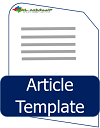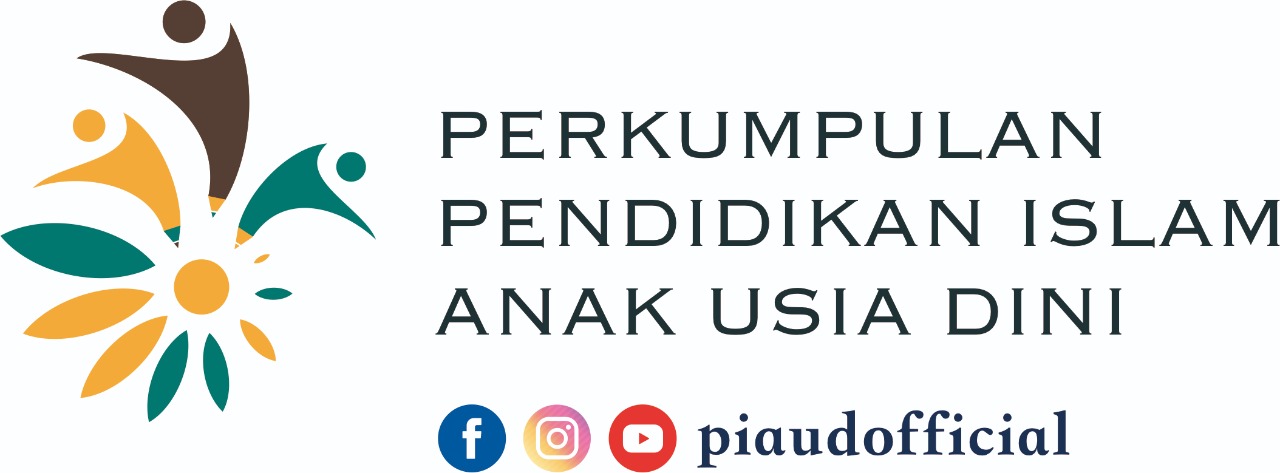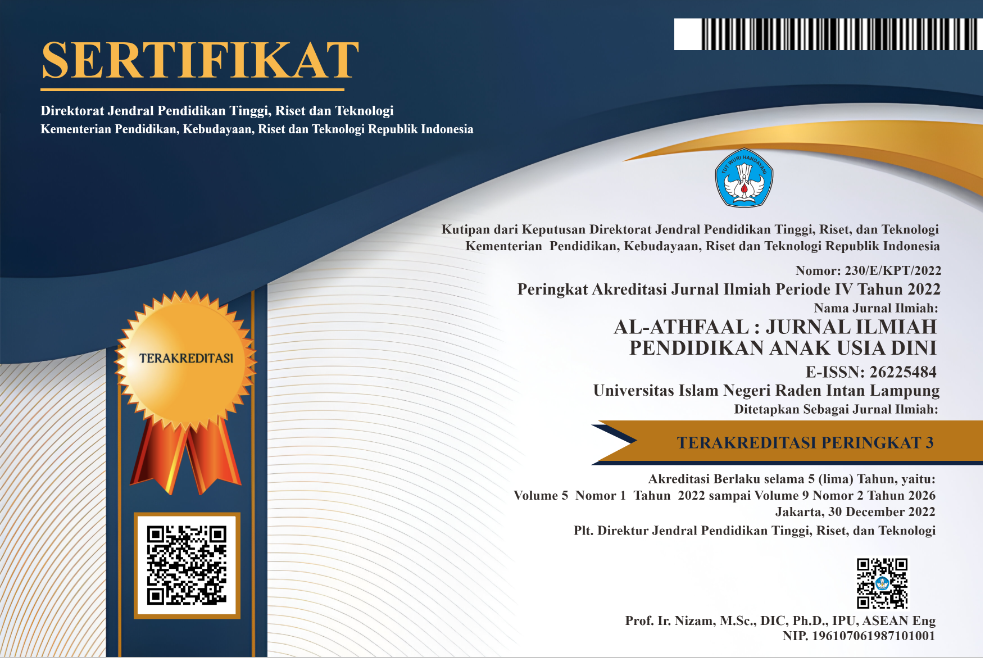Inclusive preschool education for all children
Abstract
Background: Inclusive preschool education is very important for children in Indonesia, including children with special needs. However, there are still many challenges faced, such as limited access, variations in education quality, and lack of policy support.
Aim: This research aims to map the condition of inclusive preschool education in Indonesia, identify supporting and inhibiting factors, and provide policy recommendations that can improve the quality and accessibility of inclusive preschool education.
Method: This research uses a Systematic Literature Review (SLR) with an analysis of 24 relevant articles with a time limit of 2020 to 2024.
Results: The novelty of this research lies in its comprehensive analysis based on the latest data on inclusive preschool education in Indonesia, which previous research has not specifically explored at the preschool level. From the analysis it is revealed that there are still gaps in the implementation of inclusive preschool education. To improve inclusive preschool education, adequate budget allocation, teacher training, curriculum development based on individual children's needs, cross-sector collaboration, infrastructure adaptation, and development of an inclusive culture are needed. Government support, strong commitment, and the active role of parents, schools, teachers, and the community are also considered important in creating an inclusive educational environment. Policy recommendations include cross-sector collaboration, infrastructure adaptation, inclusion awareness campaigns, regulatory development, and increasing the accessibility of inclusive preschool education.
Conclusion: The conclusion of this research shows that with the right strategy and adequate support, inclusive preschool education in Indonesia can be improved significantly so that every child has the same right to quality education.Keywords
Full Text:
PDFReferences
Ackah-Jnr, F. R., & Danso, J. B. (2019). Examining the physical environment of Ghanaian inclusive schools: how accessible, suitable and appropriate is such environment for inclusive education? International Journal of Inclusive Education, 23(2), 188–208. https://doi.org/10.1080/13603116.2018.1427808
Ag-Ahmad, N., Syed Mohamed, A. T. F., & Bakar, E. W. (2022). Support needed for language teachers’ professional development in Malaysia: A narrative review. International Journal of Academic Research in Business and Social Sciences, 12(5). https://doi.org/10.6007/IJARBSS/v12-i5/13099
Agus, A., Juliadharma, M., & Djamaluddin, M. (2023). Application of the CIPP model in evaluation of the inclusive education curriculum in madrasah aliyah. Nidhomul Haq : Jurnal Manajemen Pendidikan Islam, 8(1), 31–50. https://doi.org/10.31538/ndh.v8i1.2705
Allen, L., & Barnett, L. (2020). Leveling the playing field: Increasing general educator’s special education knowledge. SRATE Journal, 29(2), 1–9. https://doi.org/10.1080/13603116.2018.1427808
Angreni, S., & Sari, R. T. (2020). Identifikasi dan implementasi pendidikan inklusi bagi anak berkebutuhan khusus di sekolah dasar Sumatera barat. AULADUNA: Jurnal Pendidikan Dasar Islam, 7(2), 145–153. https://doi.org/10.24252/10.24252/auladuna.v7i2a4.2020
April, V. N., & Djafri, N. (2024). Inclusive Education And Local Wisdom : Creating A Friendly Learning Environment For Children With Special Needs. 4(2), 117–128. https://doi.org/10.23971/tf.v2i2.962
Astuti, A. K., Efendi, M., Rahman, D. H., & Ediyanto. (2024a). Early detection and treatment speech delay children of preschool age (multi-site study of 3 preschool institutions in Malang City). Jurnal Multidisiplin Madani, 4(1), 132–139. https://doi.org/10.55927/mudima.v4i1.7848
Bai, M. A. L. , & Suprojo, A. (2019). Pembangunan sumber daya manusia dalam mewujudkan persamaan hak pendidikan bagi anak berkebutuhan khusus. Jurnal Ilmu Sosial Dan Ilmu Politik (JISIP), 8(1), 46–51. https://doi.org/10.33366/jisip.v8i1.1531
Barlian, U. C. , Wulandari, R. P. , Said, M. , & Brilianti, N. L. (2023). Peran guru kelas dan guru pendamping khusus dalam meningkatkan layanan pendidikan inklusi di TK Ibnu Sina. Al-Afkar, Journal For Islamic Studies, 6(2), 623–634. https://doi.org/10.31943/afkarjournal.v6i2.648
Bartolo, P. A., Kyriazopoulou, M., Björck-Åkesson, E., & Giné, C. (2021). An adapted ecosystem model for inclusive early childhood education: A qualitative cross European study. International Journal of School and Educational Psychology, 9(1), 3–15. https://doi.org/10.1080/21683603.2019.1637311
Berasategi Sancho, N., Idoiaga Mondragon, N., Dosil Santamaria, M., & Picaza Gorrotxategi, M. (2022). The well-being of children with special needs during the COVID-19 lockdown: Academic, emotional, social and physical aspects. European Journal of Special Needs Education, 37(5), 776–789. https://doi.org/10.1080/08856257.2021.1949093
Bietenbeck, J. ;, Piopiunik, M. ;, & Wiederhold, S. (2018). Africa’s skill tragedy: Does teachers’ lack of knowledge lead to low student performance? Journal of Human Resources, 53(3), 553–578. https://doi.org/10.3368/jhr.53.3.0616-8002R1
Braslauskienė, R., & Turauskienė, E. (2023). preschool teachers’ experiences of inclusive education in developing children’s communication competence. Regional Formation and Development Studies, 6–18. https://doi.org/10.15181/rfds.v40i2.2526
DeMatthews, D. E., Serafini, A., & Watson, T. N. (2021). Leading inclusive schools: Principal perceptions, practices, and challenges to meaningful change. Educational Administration Quarterly, 57(1), 3–48. https://doi.org/10.1177/0013161X20913897
Diale, B. M., & Sewagegn, A. A. (2021). Early childhood care and education in Ethiopia: A quest for quality. Journal of Early Childhood Research, 19(4), 516–529. https://doi.org/10.1177/1476718X211002559
Efremov, N. A., Kalátová, D., Morozova, N. V, Andreyko, E. O., Muzhzhavleva, T. V, Efremova, M. P., Lammert, A., Vasileva, I. A., & Bondarenko, N. V. (2022). Formation of a culture of tolerance among students. In 9th International Conference on Education & Education of Social Sciences, 366–372. https://doi.org/10.51508/intcess.202253
Ferreira, M. (2022). A theoretical essay about inclusion and the role of teachers in building an inclusive education. European Journal of Education and Pedagogy, 3(3), 97–104. https://doi.org/10.24018/ejedu.2022.3.3.353
Gigerl, M., Sanahuja-Gavaldà, J. M., Petrinska-Labudovikj, R., Moron-Velasco, M., Rojas-Pernia, S., & Tragatschnig, U. (2022). Collaboration between schools and museums for inclusive cultural education: Findings from the INARTdis-project. Frontiers in Education, 7. https://doi.org/10.3389/feduc.2022.979260
Gusti, N. S. (2021). Implementasi pendidikan inklusi dalam setting sekolah menengah atas di Kota Mataram Provinsi Nusa Tenggara Barat. Jurnal Kependidikan: Jurnal Hasil Penelitian Dan Kajian Kepustakaan Di Bidang Pendidikan, Pengajaran Dan Pembelajaran, 7(3), 532–544. https://doi.org/10.33394/jk.v7i3.3469
Hermanto, H., & Pamungkas, B. (2023). Teacher Strategies for Providing Access to Learning for Students with Special Needs in Elementary Schools. International Journal of Learning, Teaching and Educational Research, 22(4), 345–361. https://doi.org/10.26803/ijlter.22.4.20
Hill, N. E. (2022). Parental involvement in education: Toward a more inclusive understanding of parents’ role construction. In Educational Psychologist (Vol. 57, Issue 4, pp. 309–314). Routledge. https://doi.org/10.1080/00461520.2022.2129652
Hornby, G., & Blackwell, I. (2018). Barriers to parental involvement in education: an update. Educational Review, 70(1), 109–119. https://doi.org/10.1080/00131911.2018.1388612
Hyseni Duraku, Z., Jahiu, G., Likaj Shllaku, E., Boci, L., & Shtylla, H. (2021). Albanian Preschool Personnel’s Perceived Obstacles to Implementing Effective Inclusive Education. Frontiers in Education, 6(May), 1–9. https://doi.org/10.3389/feduc.2021.645254
Jesslin, J. , & Kurniawati, F. (2020). Perspektif orang tua terhadap anak berkebutuhan khusus di sekolah inklusif. JPI (Jurnal Pendidikan Inklusi), 3(2), 72-91., 3(2), 72–91. https://doi.org/10.26740/inklusi.v3n2.p72-91
Jusni, E., Fonsén, E., & Ahtiainen, R. (2023). An Inclusive Early Childhood Education Setting according to Practitioners’ Experiences in Yogyakarta, Indonesia. Education Sciences, 13(10), 1–23. https://doi.org/10.3390/educsci13101043
Kabwos, R. C., & Bitok, E. C. (2022). Influence of Adapted Physical Facilities on the Execution of Inclusive Education in Public Preschools in Belgut Sub-County, Kenya. East African Journal of Education Studies, 5(2), 392–401. https://doi.org/10.37284/eajes.5.2.819
Karaolis, O. (2022). Puppets and inclusive practice: Engaging all learners through drama and puppetry in preschool contexts. Teachers and Curriculum, 22(2), 7–16. https://doi.org/10.15663/tandc.v22i2.402
Karlsudd, P. (2021). Promoting diversity and belonging: Preschool staff’s perspective on inclusive factors in the swedish preschool. Education Sciences, 11(3). https://doi.org/10.3390/educsci11030104
Kartono, D. T., Budiati, A. C., Suryadinata, T. A., Bawono, B. S., & Andriani, L. (2024). Integrated Inclusive School Network Cluster as a Resource Center for Inclusive Education in Surakarta. SHS Web of Conferences, 182, 04001. https://doi.org/10.1051/shsconf/202418204001
Keskinova, A. (2020). The role of the family educator in early intervention process of children with disabilities. Annuaire de La Faculté de Philosophie, 483–491. https://doi.org/10.37510/godzbo2073483k
Klibthong, S., & Agbenyega, J. S. (2022). Assessing issues of inclusive education from the perspectives of Thai early childhood teachers. International Journal of Early Years Education, 30(2), 403–418. https://doi.org/10.1080/09669760.2020.1823205
Kurniawati, F. (2021). Exploring teachers’ inclusive education strategies in rural Indonesian primary schools. Educational Research, 63(2), 198–211. https://doi.org/10.1080/00131881.2021.1915698
Li, L., & Ruppar, A. (2021). Conceptualizing Teacher Agency for Inclusive Education: A Systematic and International Review. Teacher Education and Special Education, 44(1), 42–59. https://doi.org/10.1177/0888406420926976
Madani, R. A. (2019). Analysis of Educational Quality, a Goal of Education for All Policy. Higher Education Studies, 9(1), 100. https://doi.org/10.5539/hes.v9n1p100
Madubala, S. , Fajrie, N. , & Utaminingsih, S. (2023). Analysis of Needs in the Development of Assessment of Autistic Children Through Art Therapy at Inclusive Early Childhood Education in Surakarta City. JURNAL PENDIDIKAN IPS, 13(1), 30–38. https://doi.org/10.37630/jpi.v13i1.878
Maemunah, S. (2021). The Management of Inclusive Early Childhood Education (PAUD) Based on Holistic Integrative. In 6th International Conference on Science, Education and Technology (ISET 2020), 528–534. https://doi.org/10.2991/assehr.k.211125.099
Materechera, E. K. (2020). Inclusive education: why it poses a dilemma to some teachers. International Journal of Inclusive Education, 24(7), 771–786. https://doi.org/10.1080/13603116.2018.1492640
Maysela Azzahra, I., Rachmy Diana, R., Selva Nirwana, E., Ricky Satria Wiranata, R., & Melita Andriani, K. (2022). Learning facilities and infrastructure based on the characteristics of Children with Special Needs in inclusive education. Jurnal Ilmiah Pendidikan Anak Usia Dini, 5(2), 169–190. https://doi.org/10.24042/ajipaud.v5i2.14432
Mngo, Z. Y., & Mngo, A. Y. (2018). Teachers’ Perceptions of Inclusion in a Pilot Inclusive Education Program: Implications for Instructional Leadership. Education Research International, 2018. https://doi.org/10.1155/2018/3524879
Moss, P. (2015). There are alternatives! Contestation and hope in early childhood education. Global Studies of Childhood, 5(3), 226–238. https://doi.org/10.1177/2043610615597130
Palla, L., & Vallberg Roth, A. C. (2022). Inclusive ideals and special educational tools in and out of tact: didactical voices on teaching in language and communication in Swedish early childhood education. International Journal of Early Years Education, 30(2), 387–402. https://doi.org/10.1080/09669760.2020.1733939
Raharjo, M. (2022). Early Childhood Teachers’ Knowledge in Assisting Children with Special Needs in Their Classroom. Indonesian Journal of Early Childhood Educa Tion Studies, 11(1), 26–33. https://doi.org/10.15294/ijeces.v11i1.44720
DOI: http://dx.doi.org/10.24042/00202472228100
Refbacks
- There are currently no refbacks.
Copyright (c) 2024 Al-Athfaal: Jurnal Ilmiah Pendidikan Anak Usia Dini
License URL: https://creativecommons.org/licenses/by-sa/4.0
 All publications by Al-Athfaal: Jurnal Ilmiah Pendidikan Anak Usia Dini [p-ISSN: 2622-5484, e-ISSN: 2622-5182] are licensed under a Creative Commons Attribution-ShareAlike 4.0 International License.
All publications by Al-Athfaal: Jurnal Ilmiah Pendidikan Anak Usia Dini [p-ISSN: 2622-5484, e-ISSN: 2622-5182] are licensed under a Creative Commons Attribution-ShareAlike 4.0 International License.











